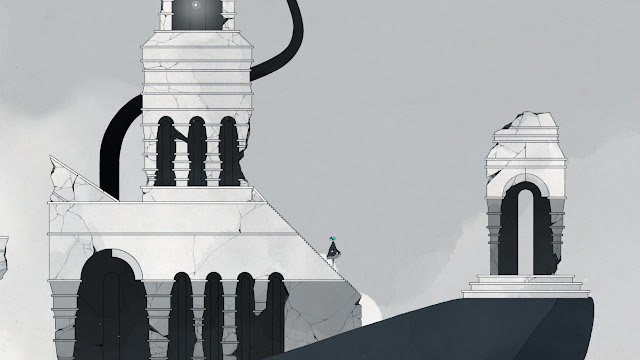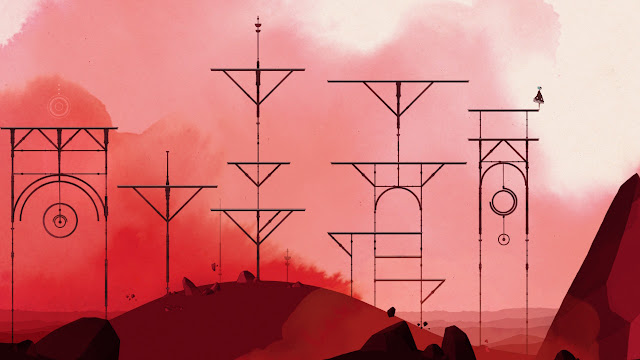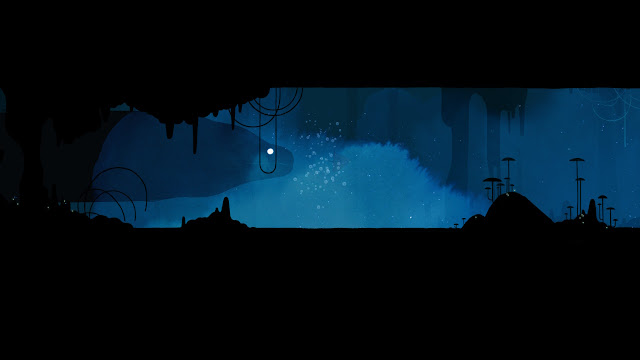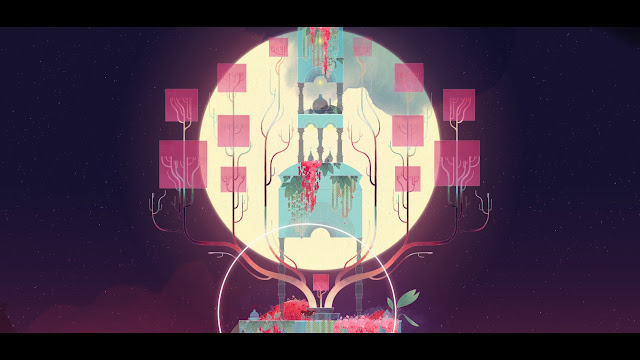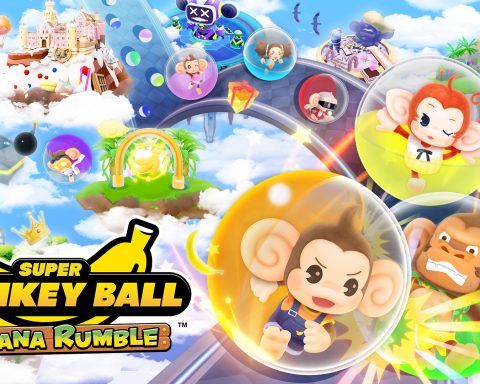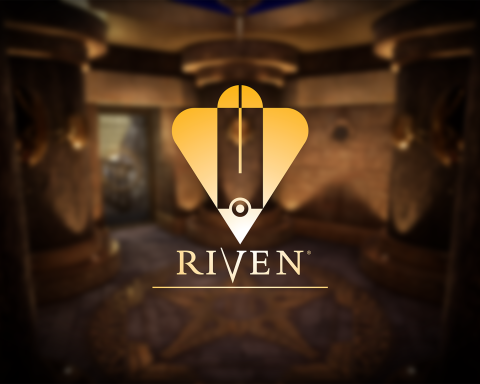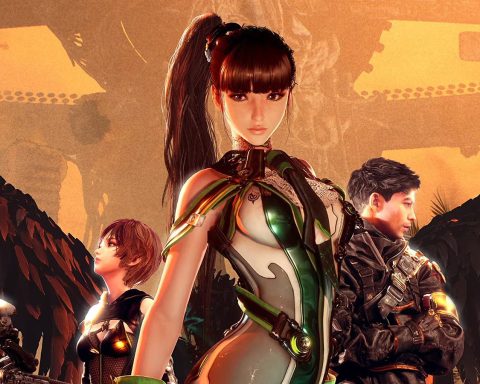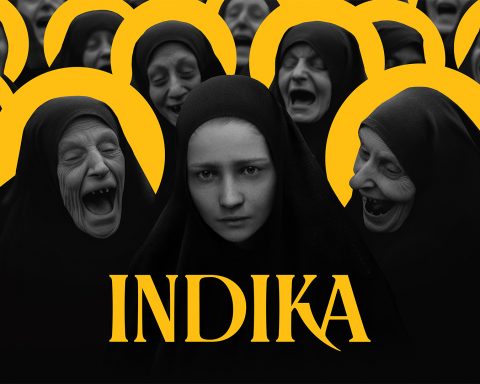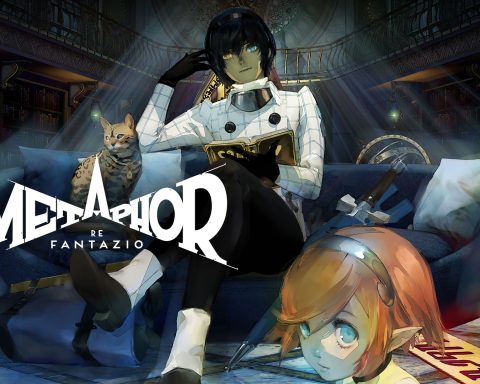Review by Matt C.
When I previewed it last month, I said that Gris was shaping up to be a powerful allegory for depression. Now that I’ve seen it all the way through, I can confirm that that is absolutely the case: without so much as a word, Gris weaves a mesmerising tale of one girl’s efforts to cope.
It begins with our eponymous hero joyfully singing, until her voice is suddenly, mysteriously snatched away from her. She desperately mouths words, but no sound comes out; she clutches at her throat, but she she can’t grab hold of what’s been lost. The ground crumbles beneath her feet and Gris falls, and falls, and falls. After what feels like an eternity, she lands, but instead of the vibrant world she knew, she finds herself in a ruined landscape devoid of life and colour.
For anyone who’s experienced depression, this will be unpleasantly familiar. In the depths of a depressive episode, it can feel like you’ve had the ground has been pulled out from under you, and like you’re falling through an endless void. It can seem as though your world’s been drained of colour, and no matter how much you try to scream, no sound comes out.
As Gris, you’re now left to explore this monochrome world, dotted as it is with crumbling buildings that seem frozen in time. A few simple jumping puzzles stand in your way, but they’re easily overcome; in these early moments, Gris is more interested in letting you exist in its bleak world than overwhelm you with platforming challenges.
Soon enough, you happen upon the giant hand of a fallen statue, and stepping upon sends a jolt of apparent pain through Gris’ body. With that, red returns to the world—the colour of blood, the colour of life, and the colour of the dusty wind storms that now hinder your progress. At first, all you can do is take shelter in the ruins and hurry forward during the quiet spells, but eventually you find an altar that, when activated, imparts Gris with a new ability: she can shape her billowing dress into a cube, solid enough to withstand the wind storms and to break through certain pieces of particularly decrepit architecture.
With this, the puzzle platformer aspect of Gris begins in earnest. The return of red and wind to the world also gives life to Da Vinci-esque clockwork contraptions for you to navigate, with your new weighty dress technique able to activate switches and withstand the gusts. Red also sees bugs return to life, some of which will pick up rocks and ferry you between platforms.
Further along your journey, another statuesque hand brings another colour back to the world: green. With that comes trees and strange little woodland creatures, while the harsh, angular lines of the ruined world give way to rolling hills and lush valleys. Reborn tree canopies serve as new platforms, some of which fold in and out of existence, and a hard-earned friendship with a little critter becomes the key to finding new paths through the jungle.
Carry on, and more statues bring back more colours and more shades of life: blue, the colour of rain and ice and water, and yellow, the colour of moonlight that extends a guiding hand through the darkness. By the end, Gris has gone from a lifeless world of black and white to a dreamy watercolour wonderland.
This is important, because as powerful as those opening moments are at capturing the feeling of falling into a pit of depression, the rest of the game is about finding your way through it—finding a way to bring those lost colours back to life. There are obstacles and challenges aplenty, be they environmental roadblocks or the shadows that take the form of fearsome birds and giant eels. You’ll need support and you’ll need friends, but, ultimately, you’ll need to confront your own demons and find a way to move through the darkness.
What might seem odd, at first, is that you can’t “fail” in Gris. You’ll never fall to your doom or find yourself sent back to a checkpoint after dealing with the business end of some monster or other. A mistake will simply see you fall and lose some of your progress—sometimes a little, sometimes a lot—and force you to pick up and claw your way back. It’s not necessarily more forgiving than a typical game over, and certainly more tedious, but that’s the point: when you’re fighting through depression, a simple setback can feel like you’ve finally made it almost to the top of a mountain only to fall back to the bottom.
In saying that, Gris is, by design, not particularly challenging, so those setbacks are few. I can understand why, and appreciate the move toward accessibility for something as universal as what Nomada Studio is clearly going for. But at the same time, some part of me wishes there were more of those more trying moments—not for the sake of challenge so much as the metaphor that comes with it.
Regardless, by the time the credits roll, Gris makes it feel like you’ve climbed a mountain. Between the gorgeous artwork, haunting score, and increasingly abstract world, it manages to take you on a journey through depression that words alone never could. If it’s something you’ve experienced yourself, you can probably guess where it’s going and what those shadows might be, but Gris is no less powerful for it. In fact, it’s quite the opposite: at least for me, the familiarity of Gris’ journey is what made it so impactful, like it was reaching out a hand and saying “I understand.”
Gris understands, and in an exploration of depression as lucid as this, that’s vital.


